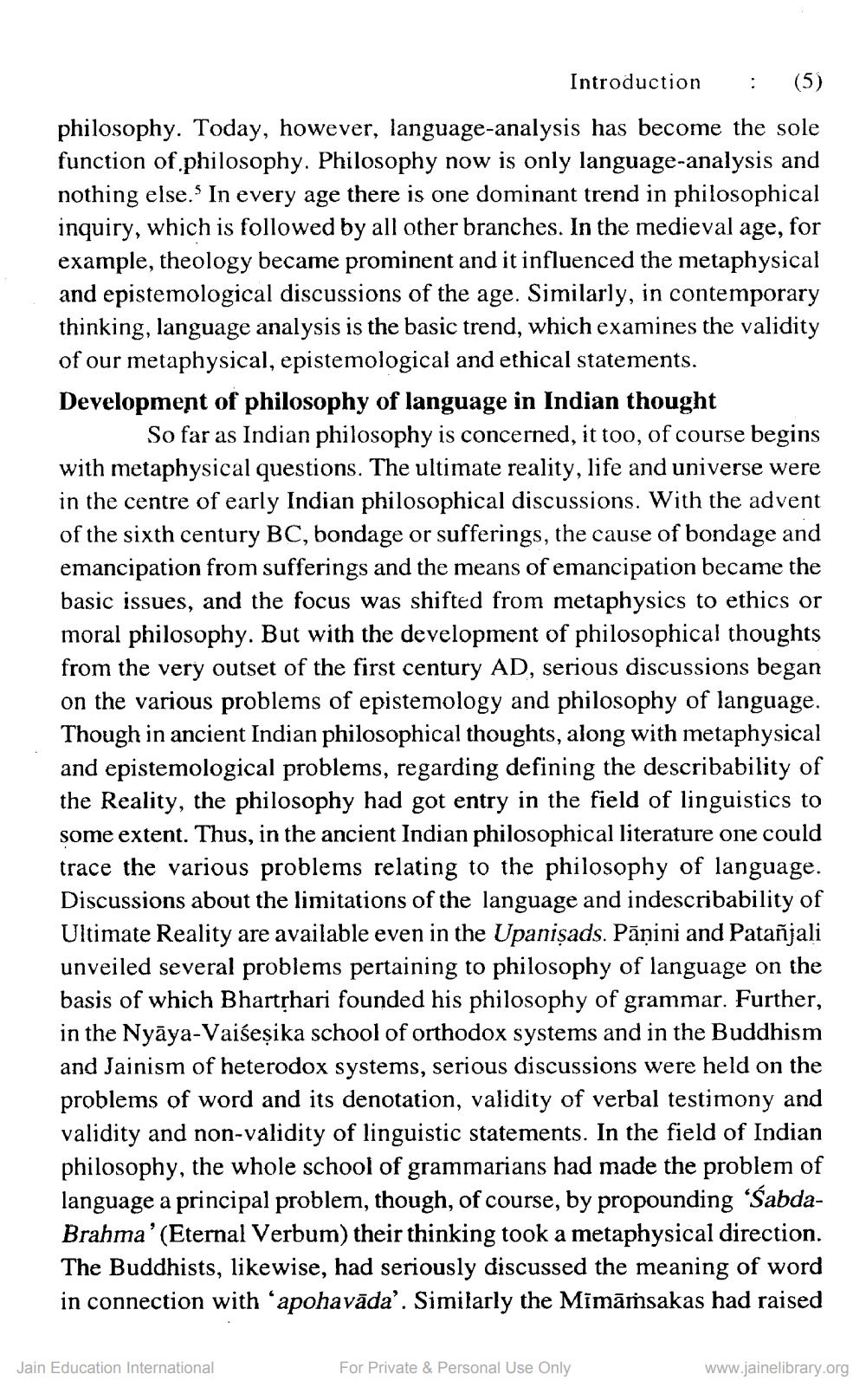________________
Introduction : (5) philosophy. Today, however, language-analysis has become the sole function of philosophy. Philosophy now is only language-analysis and nothing else. In every age there is one dominant trend in philosophical inquiry, which is followed by all other branches. In the medieval age, for example, theology became prominent and it influenced the metaphysical and epistemological discussions of the age. Similarly, in contemporary thinking, language analysis is the basic trend, which examines the validity of our metaphysical, epistemological and ethical statements. Development of philosophy of language in Indian thought
So far as Indian philosophy is concerned, it too, of course begins with metaphysical questions. The ultimate reality, life and universe were in the centre of early Indian philosophical discussions. With the advent of the sixth century BC, bondage or sufferings, the cause of bondage and emancipation from sufferings and the means of emancipation became the basic issues, and the focus was shifted from metaphysics to ethics or moral philosophy. But with the development of philosophical thoughts from the very outset of the first century AD, serious discussions began on the various problems of epistemology and philosophy of language. Though in ancient Indian philosophical thoughts, along with metaphysical and epistemological problems, regarding defining the describability of the Reality, the philosophy had got entry in the field of linguistics to some extent. Thus, in the ancient Indian philosophical literature one could trace the various problems relating to the philosophy of language. Discussions about the limitations of the language and indescribability of Ultimate Reality are available even in the Upanisads. Pānini and Patañjali unveiled several problems pertaining to philosophy of language on the basis of which Bhartshari founded his philosophy of grammar. Further, in the Nyāya-Vaiseșika school of orthodox systems and in the Buddhism and Jainism of heterodox systems, serious discussions were held on the problems of word and its denotation, validity of verbal testimony and validity and non-validity of linguistic statements. In the field of Indian philosophy, the whole school of grammarians had made the problem of language a principal problem, though, of course, by propounding 'SabdaBrahma'(Eternal Verbum) their thinking took a metaphysical direction. The Buddhists, likewise, had seriously discussed the meaning of word in connection with ‘apohavāda'. Similarly the Mimāṁsakas had raised
Jain Education International
For Private & Personal Use Only
www.jainelibrary.org




